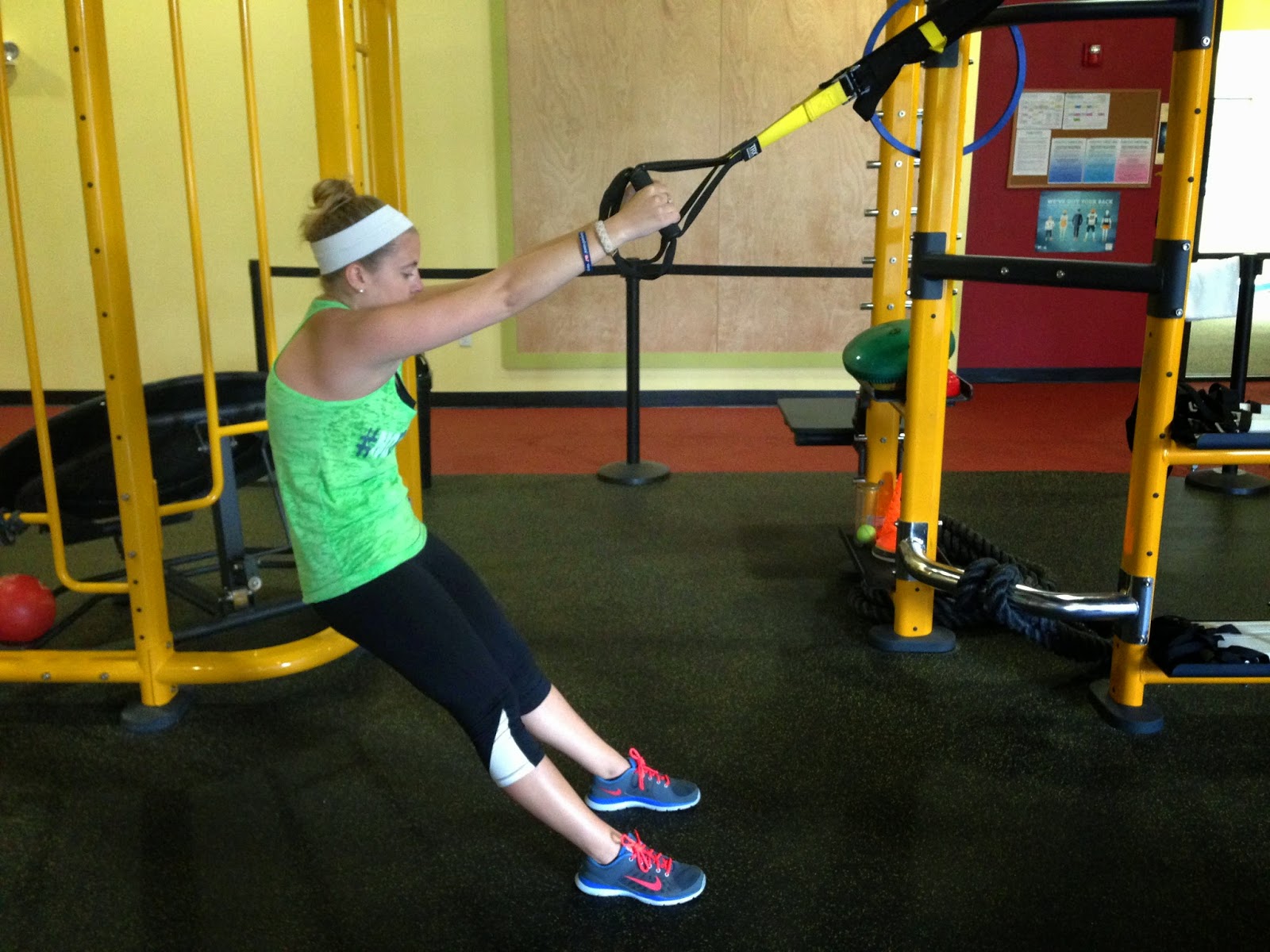Flexibility can and should be
trained as part of your routine, just like training for strength, speed, or
power. The American College of Sports Medicine just released new guidelines for
flexibility exercise.
"Flexibility
Exercise
Adults should do flexibility
exercises at least two or three days each week to improve range of motion.
Each stretch should be held for
10-30 seconds to the point of tightness or slight discomfort.
Repeat each stretch two to four
times, accumulating 60 seconds per stretch.
Static, dynamic, ballistic and PNF
stretches are all effective.
Flexibility exercise is most
effective when the muscle is warm. Try light aerobic activity or a hot bath to
warm the muscles before stretching."
But why stretch with the TRX
straps? Because there is nothing this simple piece of equipment can't do! That
is why!
• The TRX will act as a "partner" allowing you to try out the PNF style of
stretching. There is where you contact and relax your muscle to allow for a greater stretch.
•
It
will help assist you into greater ranges of motion, deepening your stretch.
•
You
can stretch multiple areas with one exercise. Who does't love to
multitask!
Stretching on the TRX as part of a
flexibility program can help to diminish many of the aches and pains you
experience after a tough workout or sitting at a desk (or on the couch) all
day. Building greater flexibility also:
•
Improves circulation
•
Improves
range of motion
•
Improves posture
•
Decreases
joint stiffness
•
Decreases
muscle tension
•
Promotes
awareness of body in space
•
Facilitates
relaxation
Don't just leave the gym after your
workout. Grab the TRX straps and do a quick stretching routine while your muscle are
warm. Or even plan an active recovery day to do a 20-30 minute stretching
routine!
Here are 5 stretches you can do
with the TRX. There are a ton more, so ask a trainer if you need help
stretching in a particular area!
Hamstrings
Lower the straps all the ways
down and covert to single arm mode. Sitting on the ground, place one heel into
the straps. Keeping your back and legs straight slowing walk yourself forward
away from the anchor until you feel a stretch in the back of your leg.
Hip Flexors
Raise the straps so they hang
around knee height. With your back to the straps, place one foot into the loop.
Your knee should comfortably rest on the ground. Lunge out to 90 with the free
foot and press forward through the hips to hold the stretch.
Calves
Don't forget your calf is made
up of two muscles and both need to stretched! With the straps still in single
arm mode, stand up and place one heel into the loop and straighten out your
leg. Pull back on the strap until you feel a stretch through the upper part of
your calf. To target the lower portion of you calf, bend your knee while still
pulling back on the strap.
Chest
Revert straps back to double arm
mode. Grab a hold of each strap and walk away from the anchor. As you get
further away, let you arms stretch out to the side until the are in line with
your shoulders. Step out with one foot and lunge your body forward while
keeping your chest up.
Back
Holding onto the straps, slightly lean
back with arms extended and shoulder blades engaged (think like you
are trying to squeeze them down and together). This is the starting position.
Slowly let your shoulder blades relax. As a result your arms will be pulled forward by the
straps. Keeping your body in a straight line, round your upper and
hold the stretch. To target your lats, hinge at the hip letting your back
flatten out and rotate to one side then the other.
Blog post by Catie Furbush CSCS.









No comments:
Post a Comment